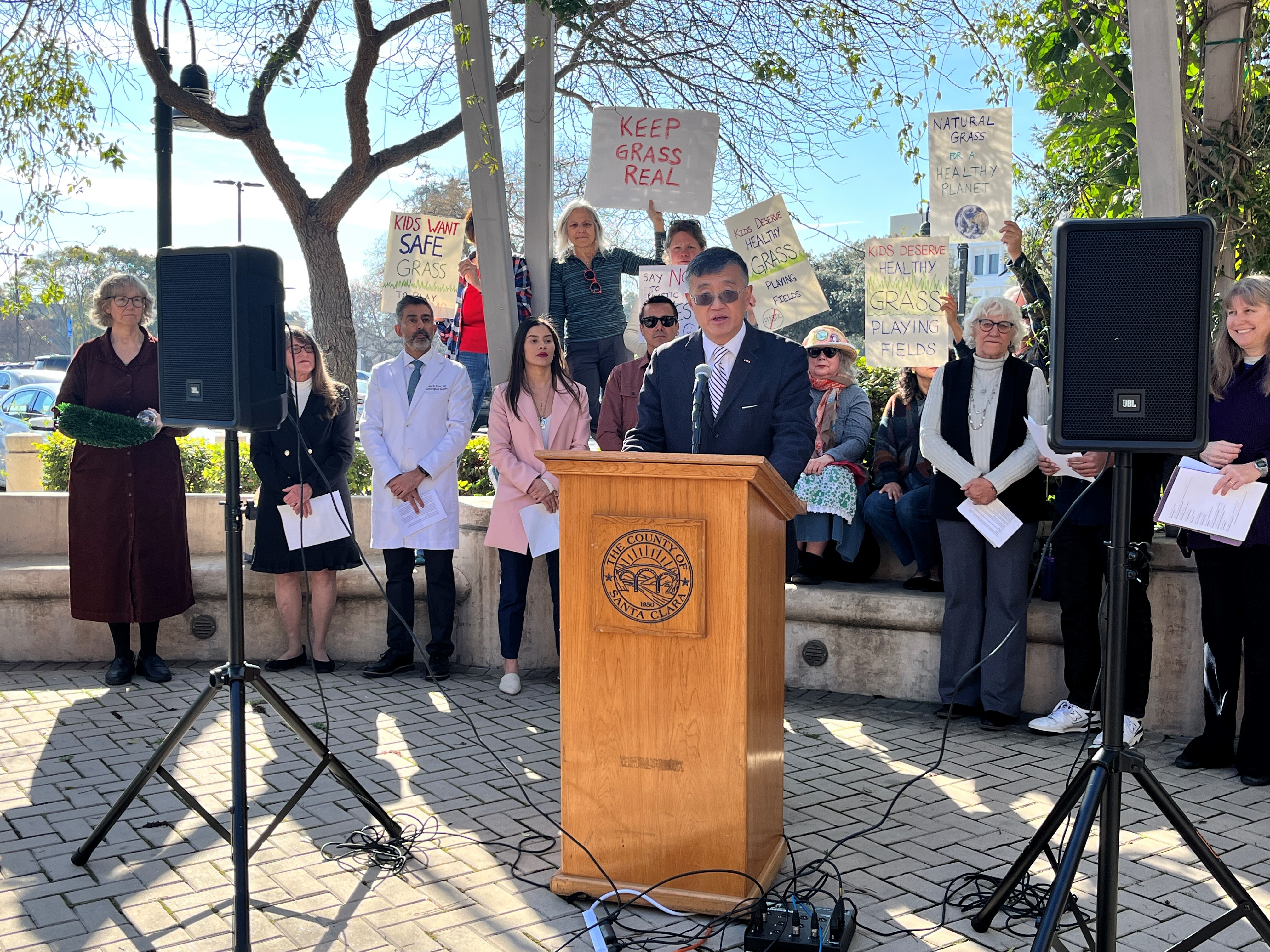For college athletes, mental health challenges can have lifelong consequences. A recent survey of 21,000 NCAA athletes found an increase in students reporting mental health problems. But the NBC Bay Area Investigative Unit found that unlike other sports related injuries, mental health illnesses like eating disorders are often untreated and undetected. Now the NCAA is working to establish a set…
It’s one of the biggest health concerns facing college athletes with lifelong consequences.
A recent survey of 21,000 NCAA athletes found an increase in students reporting mental health challenges. But the NBC Bay Area Investigative Unit found that unlike other sports related injuries, mental health illnesses like eating disorders are often untreated and undetected.
Now the NCAA is working to establish a set of best practices for universities to better identify athletes battling mental health issues.
The National Eating Disorders Association warns that eating disorders are the deadliest of all mental health diseases. It’s a serious problem that UC Berkeley volleyball player Sarah Cole says she learned about firsthand as a freshman at UC Davis.
EATING DISORDERS IN COLLEGE ATHLETICS
“I hit rock bottom. Pretty much,” Cole told NBC Bay Area.
Local
While adjusting to the pressures of becoming a division I athlete, Cole says she developed an obsession with food and weight.
“I just tried to perfect my diet to the point where it wasn't perfect, it wasn't healthy, it wasn't even good.”
Cole left UC Davis to seek treatment off the court. After a year of healing, she made a full recovery and resumed her volleyball career at UC Berkeley. That’s where Cole came to believe that disordered eating among athlete is a problem everywhere.
“Since I've been at Cal, I've met at least 20 to 30 people that fall into that category.”
Cole believes part of the problem stems from a lack of education on campuses about the unique pressures that can prompt eating disorders in student athletes.
“When we do body composition testing and they pass out a sheet with everyone on the team's body fat percentage,” Cole cited. ”I don't think they're trying to trigger eating disorders by any means whatsoever, I think their intentions are positive, but why do that?”
Unlike concussions and heart disease, the NCAA does not require schools to establish protocols or training to educate students and staff about how to prevent and identify eating disorders.
“Right now, if my friend has an eating disorder, I don't really know what to do about it. Those resources either aren't there, or they're not advertised,” Cole said.
MENTAL HEALTH TRAINING AT CALIFORNIA UNIVERSITIES
NBC Bay Area requested eating disorder policies and training procedures for 28 public NCAA schools across California.
Some colleges like UC San Diego have strict protocols that encourage coaches to de-emphasize weight and identify malnourished athletes.
Guidelines at UC Berkeley similarly discourage teams from emphasizing weight, explaining that the goal of measuring body fat is to improve performance, not to compare athletes. The policy advises that athletes should maintain a healthy level of fat and warns “Extreme dieting and over-concern on body composition may also be a precursor to eating disorders.”
But some schools provided a more broad policy that athletic staffers never read. One university responded to our request stating “We do not offer training on that subject.”
A coach at another major program told NBC Bay Area regarding his school’s policy “I don’t have any recollection of seeing one.”
NCAA MENTAL HEALTH BEST PRACTICES
Dr. Brian Hainline is the first Chief Medical Officer at the NCAA and is in charge for promoting student health. Hainline says when he started the job in 2013, student-athletes were vocal about their biggest concern.
“They universally said ‘Dr. Hainline, we get that concussions are important. But please let’s make mental health your priority,’” Hainline told NBC Bay Area. “What surprised me was how the student athletes voiced that, I mean they were unequivocal. Every time I make a campus visit, I've made probably well over 100, I always meet with the student athletes on campus and every single place I’ve gone, I'm hearing that.”
Hainline formed a task force to spotlight those mental health issues and search for solutions.
“Disordered eating and eating disorders, that will kill more people every year than concussions. That will lead to disability in a way the concussions wont. This is a very serious issue,” Hainline said.
The last time the NCAA surveyed student athletes about eating disorders was in 1999. The study revealed nearly a third of student-athletes are at risk for some form of eating disorder.
In March, Hainline’s office developed a manual to provide schools with best practices when addressing mental health. The guidelines would require schools to provide training for coaches and staff on how to prevent and identify athletes suffering from mental disorders. While the manual is endorsed by a comprehensive list of sports and medical groups, it is not required for schools to implement.
NBC Bay Area asked if the NCAA should take it a step further and require all schools to follow these mental health best practices?
“Well that's a question that I asked too. My job as Chief Medical Officer is to help the membership make informed decisions. So I'm working on that.” Hainline said while he would like to see best practices implemented at universities nationwide, the approval process for issuing a new mandate can take up to several years.
EATING DISORDER PREVENTION AT INDIANA UNIVERSITY
While records show that many schools in California fail to screen athletes or train coaches about eating disorders, Indiana University psychologist Dr. Ron Thompson says implementing these changes are vital to the health of college teams.
“We don't have coaches talk with athletes about their weight, about dieting, they're not to make comments about their bodies or their weight,” Thompson told NBC Bay Area.
Thompson works with the athletic department at Indiana University to increase the school’s focus on performance, rather than weight. In addition, Thompson has spent the past 30 years delivering his message of mental health to schools across the country.
“When I speak to coaching groups, the first thing I tell them… You have the power and influence to either promote or prevent eating disorders,” Thompson said.
Thompson believes the training and procedures implemented at Indiana has enabled the athletic department to identify and refer athletes to him for treatment every year. Thompson says these practices should be at all schools.
“It's not like somebody would have to reinvent the wheel. It's not that hard,” Thompson said.
After earning her degree from UC Berkeley this past spring, Cole hopes to work with the university’s athletic department and student health center to create a tighter safety net to catch more athletes at risk.
“If you are that competitive person that wants to win in all areas of life. . . go win all areas of life absolutely. But make sure mental health is one of [those areas],” Cole said.
If you have a tip for Vicky Nguyen about this, or any other story, you can email her directly at vicky@nbcbayarea.com or you can email theunit@nbcbayarea.com or call 888-996-TIPS.
Follow Vicky Nguyen on Twitter www.twitter.com/VickyNguyenTV and Facebookwww.facebook.com/VickyNguyenTV



